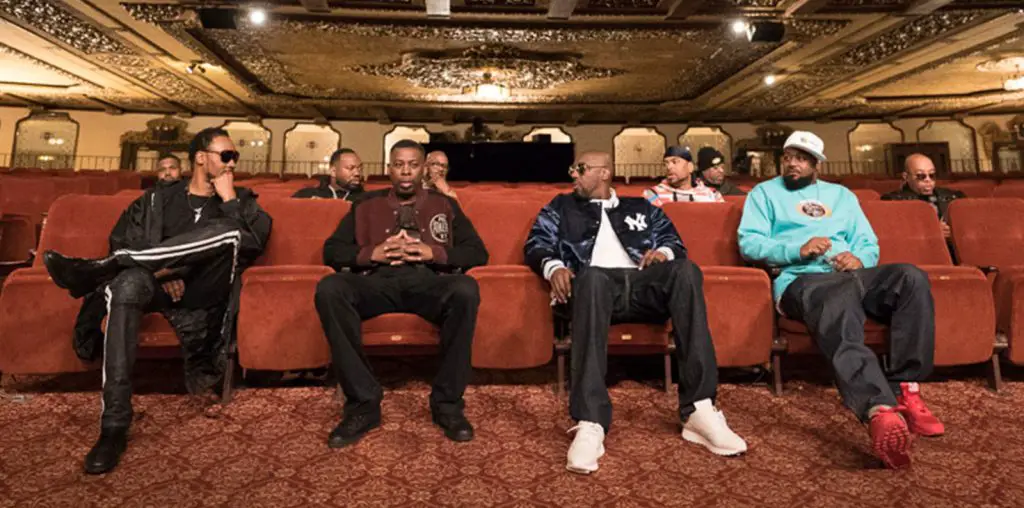
Charlie Chaplin and Leonard Maltin go way back. According to the famously-amiable movie critic whom most people know from TV (“Entertainment Tonight,” “Hot Ticket”) or from his annual best-selling
The movie—which Maltin confesses to having seen at least a couple of dozen times (and which has recently been released in a pristine DVD format, with plenty of extras), follows the labyrinthine adventures of Chaplin’s Little Tramp, who is driven comically insane by the tedious monotony of his joyless job. He’s a bolt-turner on a massive assembly line in a futuristic factory (futuristic for 1936) where the actions of every employee are watched on monitors, and where the boss is a little dictator.
It’s a remarkably fun, and funny, film—and the theater was packed. But I have to wonder whether a 2003 audience was going to miss a lot of the historically references. “I wonder how well can a movie like “Modern Times” be understood in, you know . . . modern times,” I remark. “With manufacturing going overseas or being computerized, with assembly line jobs being replaced everywhere by desk-jobs, aren’t we losing the movie’s central metaphor— that the working class have all become cogs in the industrial machine?”
“I agree that most kids today have never even
“Which Daddy didn’t really appreciate,” Jesse points out.
“Still, a record player is mechanical,” Maltin continues, “it’s visible, there’s a tangible cause-and-effect that doesn’t exist in a CD player, which is technically even
“I think the struggle for individuality is ageless, though the particulars may change,” Maltin adds. “There’s an opening scene of people coming up out of a subway exit, and there’s this quick cut making the visual comparison to cattle, or is it pigs?”
“Cattle,” says Jesse.
“I think it was
“Sheep!” agrees Jesse.
“Sheep, sheep, that’s right,” says Maltin. “The point is, you don’t have to have ridden the subway in New York at rush hour to get that gag. But again, being part of a crowd and needing to be an individual is something that all of us deal with in our lives, at one time or another, if not every day of our life.”
“What was Chaplin trying to say about the, uh. . .?”
“The human condition?” laughs Maltin. “I think he was trying to say, ‘Cling to your own individualism. Fight for your own humanity. Don’t allow yourself to become dehumanized, even though it’s going to be a tough fight.’ Chaplin didn’t make light of that struggle. He shows it as a David and Goliath struggle, to
“Ultimately, that’s what the film says,” says Maltin. “It’s worth it to fight the machine.”
Though designed with a bleakness that fits in with the dystopias envisioned by Orwell and Kafka, there is a sweet undercurrent of optimism in “Modern Times.” It’s one of the things Maltin appreciates the most about it.
“I love the end of this film,” he says, “when Chaplin says to Paulette Goddard, ‘Buck up. We’ll get along!’ And he kicks up his heels and walks off into the sunset with her. That’s a wonderful message of optimism, and it was probably a great gift to people who saw this during the great Depression of the 1930s. It was a simplistic message, sure. But simplistic or not, Chaplin gave people a glimmer of hope, and that’s an incredible thing for any filmmaker to impart to an audience.”
“So,” I state, “let’s say this film gets re-released in mainstream theaters— alongside the director’s cuts of “Alien” and, I don’t know, the 20th anniversary re-release of “Pee Wee’s Big Adventure” or something. What would the young, hip, moviegoing audiences of today think of “Modern Times”? Let’s say they
“I don’t know,” he grins. “I can’t tell you what perceptions young people have . . .”
“Well,
Maltin fears that while the younger generation thrives on a feeling of independence and desire for individuality, some folks might not really know what it means anymore.
“Think about it,” says Maltin. “One time, rock n’ roll was all about rebellion, but today, nearly every rock and roll concert is sponsored by a beer company or a cell phone service. Even
“I agree. In Los Angeles, there are billboard ads on every building, filling up every inch of space,” says Jesse.”
“In the World Series, when the manager brings in a new pitcher,” I add, “the announcer says, ‘When it’s time for a change, try Jiffy Lube!’”
“That’s what I mean!” nods Maltin. “If
“And what would Charlie Chaplin make of all this?” I ask.
“Oh, I think we know
“He’d make a movie, and show us what we were doing to ourselves.”
I can see it now. “Modern Times II,” brought to you by…
____________________________________________________________
Writer David Templeton takes interesting people to the movies in his ongoing quest for the ultimate post-film conversation. This is not a review; rather, it’s a freewheeling, tangential discussion of art, alternative ideas, and popular culture.
Discuss David Templeton’s “Talking Pictures” column in Film Threat’s BACK TALK section! Click here>>>
